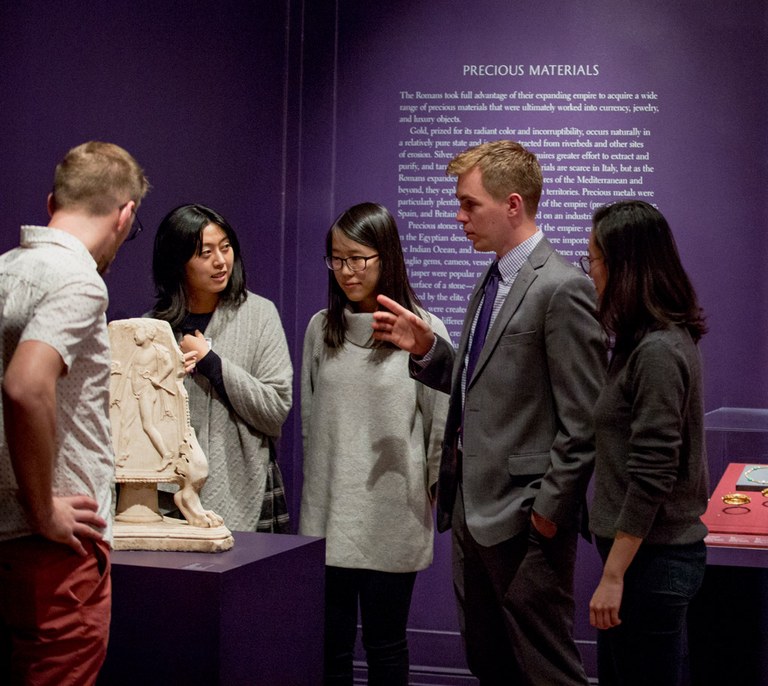From the Director (Spring 2018)
This article first appeared in ISAW Newsletter 21 (Spring 2018).
 Photo ©Kahn: Courtesy of NYU Photo Bureau
From the outset ISAW was intended to be a research center, but differing from others not only on account of its specific mission to foster studies of antiquity, but also in that it was to have a doctoral program. This component of our mission was no mere detail: it has shaped the institution that ISAW has become, encouraging our faculty to push beyond the limits of our past work and to think collaboratively, as we seek to provide coherent individualized courses of study for each student. Joining us in this effort this fall is our colleague, Antonis Kotsonas, who will add his strengths in Classics and interdisciplinary research to the ISAW faculty (see p. 6). During the years from arrival to graduation, our students develop and grow intellectually, but indirectly they also encourage the rest of us to grow.
Photo ©Kahn: Courtesy of NYU Photo Bureau
From the outset ISAW was intended to be a research center, but differing from others not only on account of its specific mission to foster studies of antiquity, but also in that it was to have a doctoral program. This component of our mission was no mere detail: it has shaped the institution that ISAW has become, encouraging our faculty to push beyond the limits of our past work and to think collaboratively, as we seek to provide coherent individualized courses of study for each student. Joining us in this effort this fall is our colleague, Antonis Kotsonas, who will add his strengths in Classics and interdisciplinary research to the ISAW faculty (see p. 6). During the years from arrival to graduation, our students develop and grow intellectually, but indirectly they also encourage the rest of us to grow.
In this issue of the ISAW Newsletter, we celebrate our latest graduating class: four students who have enriched our community and who will be missed. As we go to press, all four have multi-year appointments in different countries in the coming academic year: Sam Mirelman will start a 3-year British Academy postdoctoral fellowship at the School for Oriental and African Studies (SOAS), University of London, with a focus on the Ancient Near East. Irene Soto Marín will continue to work as an Academic Assistant at the University of Basel, Switzerland in the Institute of Ancient History. Jonathan Valk will commence a 3.5-year lectureship in Assyriology at Leiden University in the Institute of Area Studies. Fan Zhang will be a postdoctoral fellow at NYU Shanghai for one year, teaching in the undergraduate core curriculum. She will then start in the fall of 2019, a faculty position jointly appointed in the Department of Art and the Asian Studies Program at Tulane University. All four students will contribute to an interconnected understanding of the ancient world from their specific expertise at research universities.
The diverse competencies of these students reflect our shared vision of an integral and organic ancient world. As ISAW's still- small body of alumni grows, we hope that many of them will effect change in traditionally insular departments and institutions, promoting the idea that a connective approach to studying antiquity is both fruitful and necessary.
Alexander Jones
Leon Levy Director and Professor of the History of the Exact Sciences in Antiquity